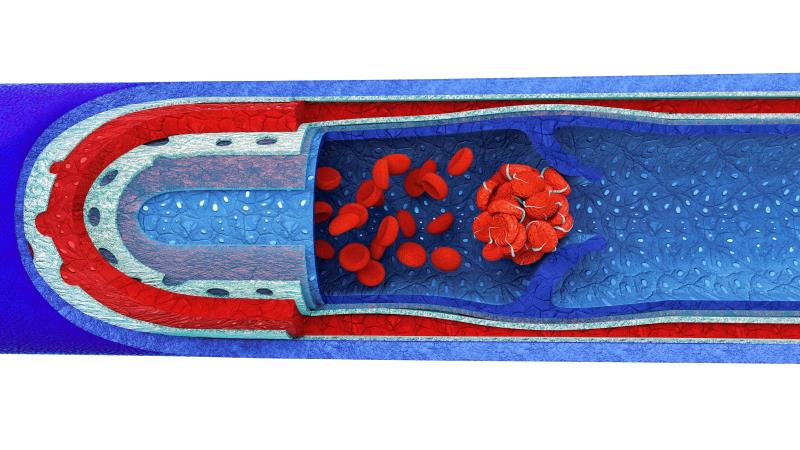Apixaban tied to lower VTE risk in ambulatory cancer patients





Treatment with apixaban led to a significantly reduced risk of venous thromboembolism (VTE) among ambulatory cancer patients who were undergoing chemotherapy, according to two post hoc analyses of the AVERT* trial presented at the ISTH 2020 Meeting.
“Patients with active cancer have an increased risk of VTE complications, which is associated with morbidity, mortality, and significant healthcare costs,” said lead author Dr Ameeta Nayak from the University of Ottawa, Medicine and Ottawa Hospital Research Institute in Ontario, Canada.
In a previous study of the AVERT trial, a significantly lower rate of VTE was observed among apixaban-treated patients with intermediate-to-high risk (Khorana score >2) for venous thromboembolism compared with patients on placebo. [N Engl J Med 2019;380:711-719] “[However,] the efficacy of apixaban in different subgroups of cancer patients remains unclear,” Nayak noted.
In this post hoc analysis, a total of 40 VTE events were reported. [ISTH 2020, abstract PB2105]
A significantly lower rate of VTE was observed among cancer patients treated with apixaban compared with placebo (4.2 percent vs 10.2 percent; hazard ratio [HR], 0.41, 95 percent confidence interval [CI], 0.26–0.65].
The use of apixaban also outdid placebo in reducing the risk of VTE among males (HR, 0.25, 95 percent CI, 0.12–0.48), participants aged <75 years (HR, 0.37, 95 percent CI, 0.24–0.59), and participants weighing >90 kg (and HR, 0.18, 95 percent CI, 0.06–0.52).
A lower rate of VTE was also observed among apixaban-treated patients with solid cancer (HR, 0.30, 95 percent CI, 0.19–0.47) and metastatic disease (HR, 0.45, 95 percent CI, 0.26–0.78) compared with placebo-treated patients.
In addition, those who reported concurrent use of antiplatelet therapy had a reduced rate of VTE (HR, 0.18, 95 percent CI, 0.10–0.33).
In another post hoc analysis of AVERT that evaluated patients with gastrointestinal cancer, those treated with apixaban demonstrated a significantly lower risk of VTE than those treated with placebo (HR, 0.27, 95 percent CI, 0.13–0.54; p=0.0002). [ISTH 2020, abstract PB2378]
There was a nonsignificant higher rate of major and clinically-relevant bleeding in the apixaban group than the placebo group at 6 months (HR, 2.39, 95 percent CI, 0.20–19.78; p=0.42 and HR, 1.97, 95 percent CI, 0.64–6.06; p=0.24, respectively).
“Apixaban thromboprophylaxis provided significantly decreased risk of VTE in [different subgroups of ambulatory cancer patients], … [particularly] in intermediate-to-high risk patients with gastrointestinal cancers, who were starting chemotherapy,” the researchers of both analyses concluded.
*AVERT: Apixaban for the prevention of venous thromboembolism in cancer patients